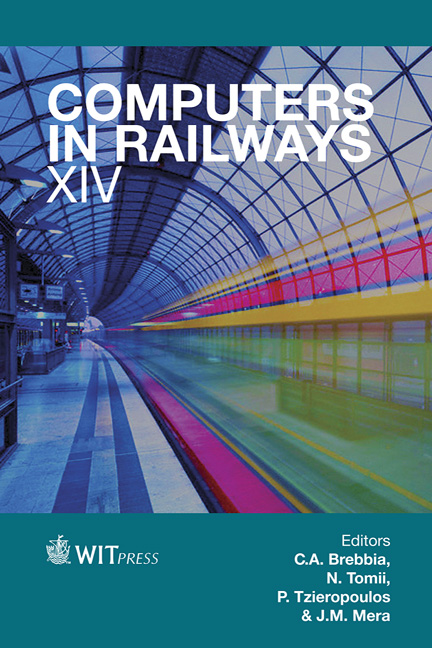Tuning Delay-propagation Models To Meet Practical Planning Procedure Requirements
Price
Free (open access)
Transaction
Volume
135
Pages
13
Page Range
551 - 563
Published
2014
Size
1,289 kb
Paper DOI
10.2495/CR140451
Copyright
WIT Press
Author(s)
T. Büker
Abstract
Thanks to a direct operation on random variables and a suitable class of cumulative distribution functions, the network-wide computation of delay propagation in railway networks is enabled in short computation times. On this basis, new work procedures to evaluate timetable robustness during the annual capacity allocation phase, to assess the interactions between temporary speed restrictions and to forecast the quality of operations have been established at European infrastructure managers. In their practical application the need for extensions appeared: Firstly, concepts of passenger services are often elaborated in detail also for long-term purposes while, in contrast, knowledge on freight services solely exists in numbers of trains per relation and time. Assuring purposeful indicators demands a consideration of interaction with freight services by linking the train-path representation of delay propagation with the stream-based modelling of freight services. By applying methods of queuing theory it proves possible to estimate the impact of \“unknown” train paths and to incorporate the load-dependent spreading of knock-on delays to the passenger service concept. Secondly, there is a need of fine-tuning the delay-propagation model to consider the relationship between infrastructure utilisation and train priorities. By manipulating the inequations underlying the stochastic operations, a relationship of the dispatching regime to the server load is created, allowing a closer fitting of simulation results to reality. Keywords: timetabling, timetable robustness, delay propagation, queuing, catalogue train paths.
Keywords
timetabling, timetable robustness, delay propagation, queuing, catalogue train paths.





